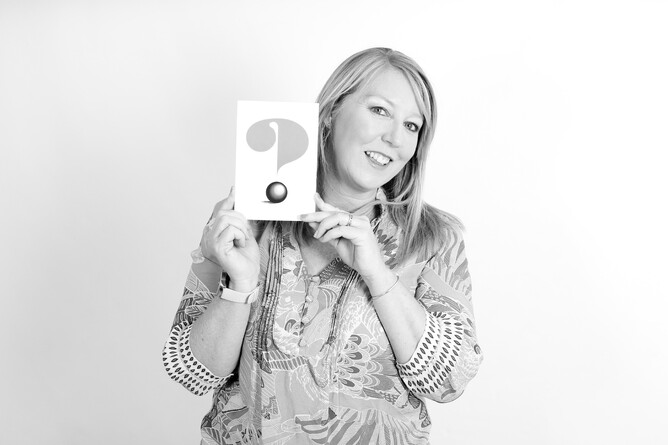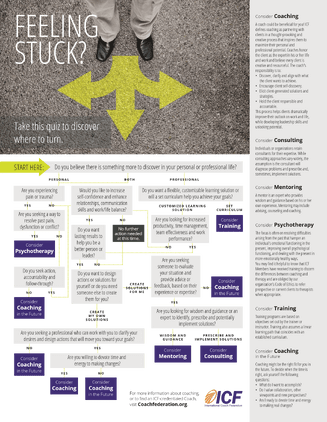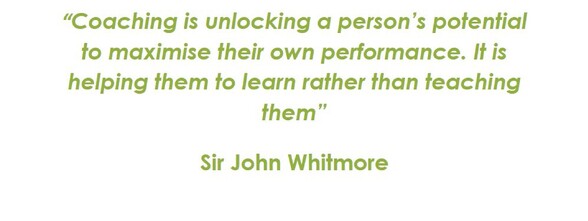Why have a coach anyway?
If you do a Google search there is a wealth of well-documented information on this subject and yet it seems that there isn’t one simple answer.
What I have noticed over the last 15+ years is that the stigma of executive coaching being a remedial intervention has diminished and now leaders are turning to coaching to support them;
- face the uncertainty and complexity of their business environment
- enhance their leadership capability and presence
- develop the leaders of the future
For any coaching to be effective the coachee has to want to learn, change, and grow.
So what is Coaching?
For me, it is a facilitated 1-2-1 conversation which offers you (the coachee) a safe, non-judgmental and collaborative partnership which enables learning through a thought-provoking and creative process.
It is a working relationship in which you come first - a conversation about what matters to you!
Here are my 8 top tips…
1. Know what you want… a coach, mentor, consultant or a therapist?
The key difference between coaching and other support such as mentoring or therapy is that your coach believes unreservedly that you are the expert of your life (personally & professionally) and that the role of the coach is to enable your learning – a reflective journey of self-discovery and adaptive action.
However, coaches are used to dealing with strong and complex feelings and will work with you to harness these effectively. Coaching is focused on you in the present moment & your future. Your coach will support you to access other support for your psychological wellbeing if needed.
Whilst a coach does not specifically teach or advise, they may share new tools and techniques to support your thinking and exploration. Coaching and Mentoring can share many of the same skills, active listening, powerful questions, and constructive feedback.
If you are looking for an expert to focus on technical problem solving or advice/guidance from an individual in the same field or profession as you then consulting or mentoring are more likely the best fit.
Coaches often have a certain expertise area that they are able to combine with their coaching, so you may end up killing two birds with one stone. There are plenty of therapists who are also trained as coaches, and plenty of consultants who are coaches, too.
Make sure you know what you want first!
The ICF has created a flowchart to help you identify what might be the best fit.
2. What kind of coach do you need?
There are 1000s of coaches out there with a variety of specialisms so which one can offer what you need?
To answer this question you will have to put some time into what your desired outcomes from the coaching might be.
For some people coaching can be simply a listening ear. Others want to achieve or change something specific e.g. leadership presence, empowering others, authentic communication. Your coach will be there for both, and for everything in between. They care greatly that you attain your desired outcomes and goals.
Leaders who experience good coaching can
- feel energised
- an increased sense resilience
- and a stronger belief in themselves and the choices they make, both personally and professionally.
They also face change with more courage, cultivate greater trust & respect and grow in self-awareness. Coaching at times of crisis and significant change can be particularly effective.
3. Referrals and 'word of mouth’ is your best bet!
Great coaches have great reputations!
Coaching can be one of the most intimate professional relationships you can be part of, by asking someone whose judgment you respect to recommend a coach you are more likely to trust that coach.
So if you know a colleague, friend or family member who has worked with a coach or know someone else who has then that is your first port of call.
All of my clients have come to me by way of a referral or ‘word of mouth’ recommendation and when I want a coach I go ask my trusted peers.
If that fails then…
5. Qualified or not!
Does a coach need to be qualified and/or accredited has been the subject of debate in the industry for decades…
When I embarked on my training there was very little choice in the market and I chose the most rigorous programme I could find (Masters in Professional Coaching through i-coach and accredited by Middlesex University, EMCC, ICF, AC).
I believe that in a self-regulated industry there has to be some way of you, the client, discerning what ‘good’ looks like. A qualification and accreditation recognised by one of the professional bodies offers that reassurance.
How is the coach keeping up-to-date with the latest research in the field? Does the coach routinely undertake continued professional development (CPD)? What supervision do they participate in?
Maintaining the highest standards of coaching should be important to any professional coach – don’t be afraid to ask your prospective coach questions about this stuff!
6. Shared experience – do you need to speak the same technical language?
What I mean by this is – does your coach need to have experience in the same industry or worked at the same level as you?
A purist might say absolutely not, advocating that your coach is not from the same industry background in order to offer novel perspectives and new insights.
Alternatively, you might feel that having a shared experience brings a feeling of familiarity, shared vocabulary and can be a quick way to build credibility and rapport.
What is important is that you choose a great coach who is your biggest supporter and challenger who
- asks those difficult questions no one else does
- offers fresh perspectives
- enables deep learning and
- holds the space for you to do the work on yourself that has you be the truest and best you.
7. What will it cost me?
Coaching is a significant investment both in time and money for you so it is important you have an idea of what this might mean.
The impact of a self-regulated industry is hugely evident when it comes to pricing, with no set tariff of fees nor any guidance on how many hours of coaching you need. Fees can range from £40 to over £500 per hour depending on a set of criteria for example; what the coaching objectives are, the experience & expertise of the coach and who is funding the coaching.
8. It’s OK to say No
Coaching most effective is when there is a good ‘fit’ or ‘chemistry’ between the coachee and their coach.
It is important to look for someone who you feel comfortable talking with, yet who will challenge you - that’s why your first session with your coach is often an ‘Intro or Chemistry’ conversation. This conversation allows you to gain insight into what it might be like to be coached by them.
You will need to feel safe to open-up to your coach, as it is likely that you will share things you would not normally share at work or elsewhere.
As mentioned in no. 6 of my top tips, a coach does not need to be like you, have a similar personality or background yet it is essential that you are able to trust them to support you through important personal and professional decisions.
If it doesn’t feel right then it probably isn’t so it’s OK to say no!
Remember to check out their social media profiles for examples of their coaching clients, recommendations and areas of expertise.
Coaching can be one of the most powerful professional experiences you or any leader can have.
Following my top tips can be a great start to your coaching journey and if you want to learn more feel free to get in touch - I love chatting to new people!









